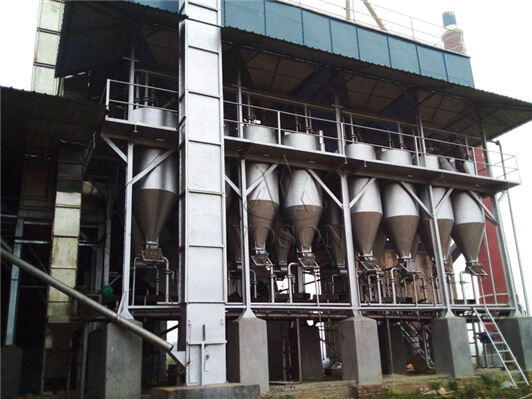Parboiled Rice Mill Plant: Efficiency and Quality in Rice Processing
Parboiled rice has gained popularity worldwide due to its enhanced nutritional value and improved cooking qualities. To meet the increasing demand, efficient parboiled rice mill plants are essential. This article sheds light on the advantages and key considerations when setting up a parboiled rice mill plant. By understanding these aspects, you can optimize your rice processing operations and deliver high-quality products to the market.
Advantages of Parboiled Rice Mill Plants:
- Improved Nutritional Value: Parboiling involves a unique steam and drying process that helps retain the nutrients present in rice bran. Parboiled rice is rich in vitamins, minerals, and fiber, making it a healthier choice compared to regular milled rice. With a parboiled rice mill plant, you can offer nutritious rice options to health-conscious consumers.
- Enhanced Cooking Properties: Parboiled rice exhibits improved texture, flavor, and cooking characteristics. The parboiling process gelatinizes the starches in the rice, resulting in firmer and less sticky grains after cooking. This makes parboiled rice ideal for a variety of dishes and enhances customer satisfaction.
- Increased Shelf Life: Parboiled rice has a longer shelf life compared to regular milled rice. The parboiling process helps reduce the chances of insect infestation and spoilage, preserving the quality and freshness of the rice. By investing in a parboiled rice mill plant, you can ensure a longer shelf life for your rice products.
Considerations:
- Plant Capacity: Determine the desired capacity of your plant based on market demand and production goals. Opt for a capacity that aligns with your business requirements to maximize productivity and profitability.
- Technology and Equipment: Select advanced technology and equipment for efficient parboiled rice processing. Automated grading, sorting, and packaging systems can streamline operations and enhance product quality. Invest in reliable machinery to minimize downtime and optimize production.
- Quality Control: Implement stringent quality control measures throughout the rice milling process. Regular inspection and testing of raw materials, as well as finished rice, ensure consistent quality. This helps build a strong reputation for your brand and maintains customer loyalty.
- Regulatory Compliance: Stay updated with local regulations and certifications related to food safety and quality standards. Ensure that your parboiled rice mill plant meets all the necessary requirements to maintain compliance and consumer trust.
Conclusion: A well-designed and efficient parboiled rice mill plant provides numerous advantages, including improved nutritional value, enhanced cooking properties, and extended shelf life. By considering factors such as plant capacity, technology, quality control, and regulatory compliance, you can establish a successful and sustainable rice processing operation. Embrace the benefits of parboiled rice and meet the rising market demand with a reliable and optimized parboiled rice mill plant.

